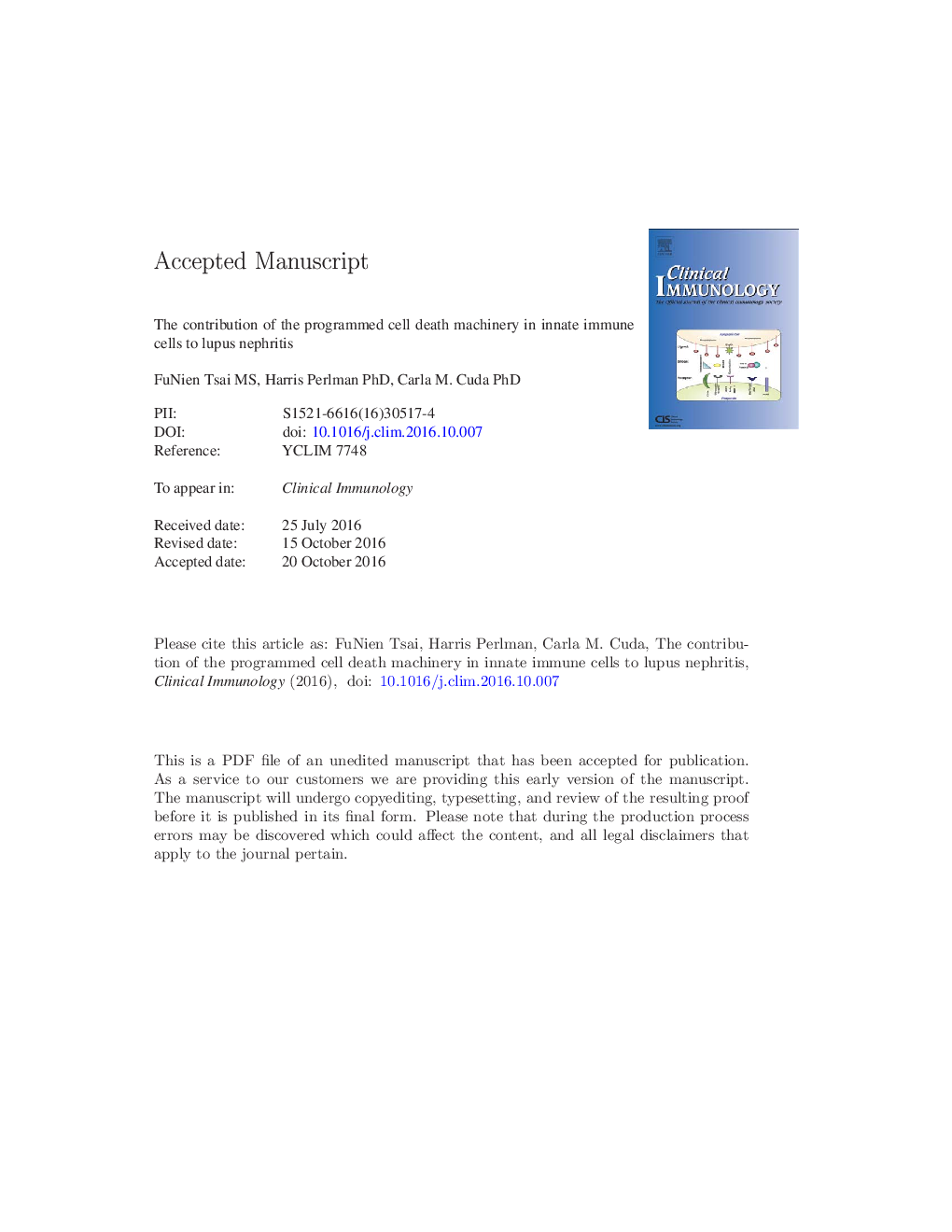| Article ID | Journal | Published Year | Pages | File Type |
|---|---|---|---|---|
| 8721476 | Clinical Immunology | 2017 | 62 Pages |
Abstract
Systemic lupus erythematosus (SLE) is a chronic multi-factorial autoimmune disease initiated by genetic and environmental factors, which in combination trigger disease onset in susceptible individuals. Damage to the kidney as a consequence of lupus nephritis (LN) is one of the most prevalent and severe outcomes, as LN affects up to 60% of SLE patients and accounts for much of SLE-associated morbidity and mortality. As remarkable strides have been made in unlocking new inflammatory mechanisms associated with signaling molecules of programmed cell death pathways, this review explores the available evidence implicating the action of these pathways specifically within dendritic cells and macrophages in the control of kidney disease. Although advancements into the underlying mechanisms responsible for inducing cell death inflammatory pathways have been made, there still exist areas of unmet need. By understanding the molecular mechanisms by which dendritic cells and macrophages contribute to LN pathogenesis, we can improve their viability as potential therapeutic targets to promote remission.
Related Topics
Life Sciences
Immunology and Microbiology
Immunology
Authors
FuNien MS, Harris PhD, Carla M. PhD,
